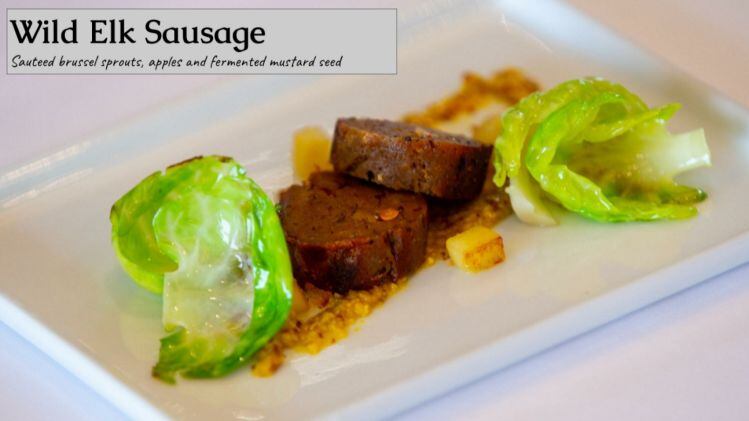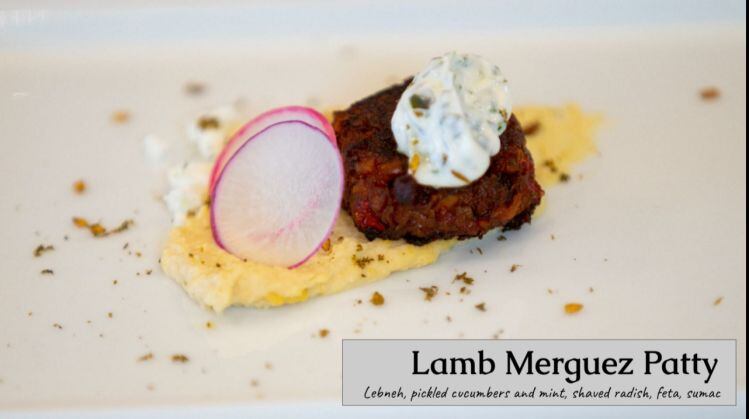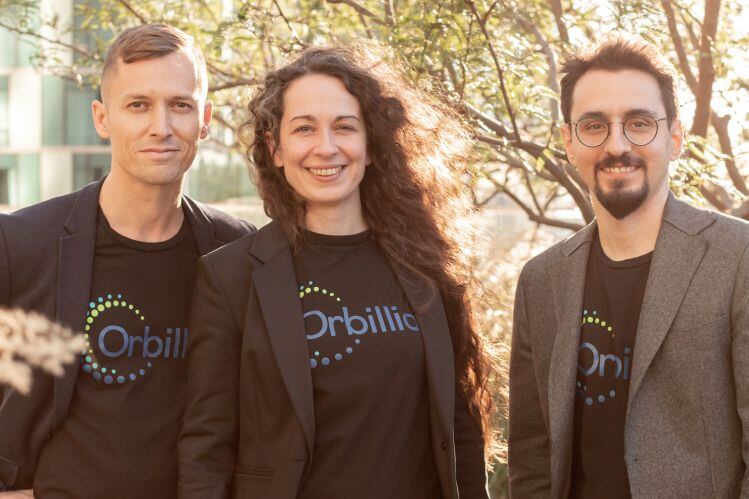But operating on Bill Gates’ premise that we tend to overestimate what can be achieved in a year and underestimate what is possible in 10 years, there are grounds for real optimism in the medium to long-term, says Orbillion Bio co-founder Dr Patricia Bubner, who completed a tasting session in San Francisco on March 17 for three ‘heritage’ meats: Wagyu beef, wild elk, and lamb; presented at Y Combinator’s Demo Day on March 23, and filled up her target allocation ($5m) for the company’s seed round* just two days later.
“There is no precedent for this at scale,” Bubner told FoodNavigator-USA. “If you look at other companies that make large scale cell culture, most of them produce proteins or products made by cells, they're not selling the cells themselves. But this will be solved, I have no doubt about it. We just need smart people, money, and time.”
Pilot production by late 2022, products for sale in 2023
While beef, chicken and to a lesser extent pork are the focus for many players in the space, Berkeley, CA-based Orbillion Bio is concentrating on ‘heritage’ breeds from Wagyu to bison to deer, said Bubner.
“We keep developing our other cell lines, but our first goal is to scale up our Wagyu beef cell line to pilot scale by the end of 2022 and start selling products in 2023 [pending regulatory review].”
The first product won’t be a steak with that distinct Wagyu marbling – although a “structured product is an awesome goal,” said Bubner. “Initially we're thinking along the lines of a ground product with that distinctive beefy flavor and that ‘melts on your tongue type’ of fat. The question is, how can we make the most delicious, flavorful products?”
‘We’re not eating Ukrainian chicken breeds because they're the most flavorful; we are eating them because they’re scalable’
But why focus on heritage breeds?
As anyone that works in the agricultural industry knows, the most widely available or cultivated varieties of plants or animals are rarely the tastiest, she observed: “We’re not eating Ukrainian chicken breeds because they're the most flavorful; we are eating them because they’re scalable.”
Put another way, if you’re growing meat in a bioreactor, rather than raising living breathing animals, there may not be a meaningful difference between the cost structures of growing heritage breeds currently considered to be delicacies and the mass market breeds that currently dominate the meat supply, she said, which is pretty exciting from a culinary perspective.
Cell lines: ‘There is also no industry consensus on which ones to use’
When it comes to scaling up cell-cultured meat, there are hurdles aplenty, she acknowledged, although significant progress has already been made on just about every aspect of the process.
On cell lines, bioreactors, growth media, and well pretty much everything, she said, “There is no standard. For cell lines, people are using what they can get their hands on. There is also no consensus on which cells to use, and at this stage, I'm not saying that one approach is better or worse.
“We are working with primordial cell lines taken from biopsies, which have a limited lifespan [they will only divide a certain number of times before petering out], but we’re also experimenting with some other stem cell lines; it’s a case of which ones are the best for scale up?
“You can immortalize cell lines and many companies go for that route, although I can't speak for everyone, and there are ways to do this without having a GMO.”
Asked about induced pluripotent stem cells, produced by effectively reprogramming adult stem cells so that they behave like embryonic stem cells that can propagate indefinitely and give rise to multiple cell types, she said, “I think it is an interesting route to go. It's not something that we are currently pursuing for a variety of reasons, but I can't exclude that we would do that in the future.”
‘When you increase scale, everything is different’
As for scaling up, she said: “When you increase scale, everything is different. Reaching higher cell densities is critical and then the more cells you have in a bioreactor, you have different fluid dynamics, you have different viscosity, you get mass transfer limitations. Plus again, if you have stem cell lines they behave very differently to somatic cell lines, and then it depends on what degree of differentiation do you want, do you have carriers in there or do you not?
“But that’s what bioprocessing is all about, and we [Bubner and co-founders Dr Gabriel Levesque-Tremblay, the CTO; and Samet Yildirim, the COO] have a background in biopharma, which has been doing large scale mammalian cell culture for decades."
High-throughput screening platform
So is Orbillion Bio growing fat, muscle, and other cell types separately, or co-culturing cells, and what at this stage is scalable?
“We’re experimenting with both, but to be honest, at the moment, nothing is scalable,” said Bubner. “I don't know of any company that has a scalable process out there yet. But our core technology - our high throughput screening platform – can help bridge the gap coming from completely uncharacterized cell lines, faster to a scalable process with these cell lines.”
On growth media – the nutrient-rich media to help the cells first proliferate and later to differentiate – significant progress has been made lately, she said, although costs need to come down much further.
‘There's not going to be just one winner in cultivated meat’
As for investment capital, while the sums poured into cell-cultured meat pale in comparison to those pumped into plant-based meat, investors are excited about the technology, although it’s difficult to compare companies because it’s a highly technical field, said Bubner.
“I’m seeing some investors use junior scientists for doing due diligence rather than somebody with 20 years of experience in bioprocessing, but in general I think a lot of investors are asking the right questions.
“They also recognize that there is a huge market and there's not going to be just one winner in cultivated meat, just as there's not one winner in plant based meat.”
*Investors in the seed round include At One Ventures (investors in Climax Foods, Finless Foods, Wild Earth), Metaplanet Holdings (investors in The Boring Company), European Nucleus Capital (investors in Hoxton Farms), FoundersX Ventures (investors in SpaceX), Prithi Ventures (investors in Mission Barns, Turtle Tree Labs), Outset Capital, Quiet Capital, Beresford Ventures, DVC; and angel investors including Jonghoon Lim, the CEO of Hanmi Pharmaceuticals, Kris Corzine, Ethan Perlstein, the CEO of Perlara, the first biotech PBC; and a well-known university endowment.



- Watch a video about Orbillion’s tasting event in March:

